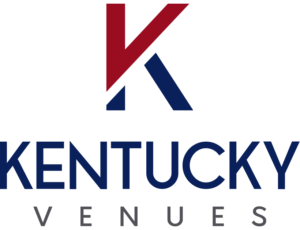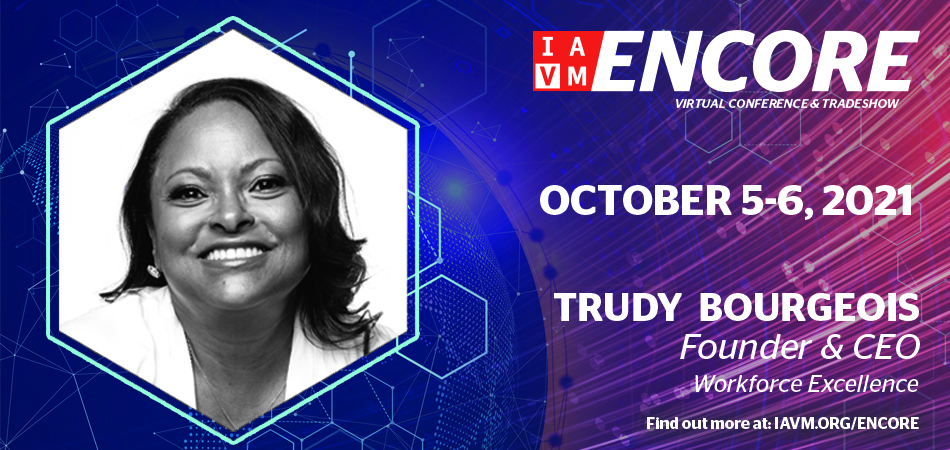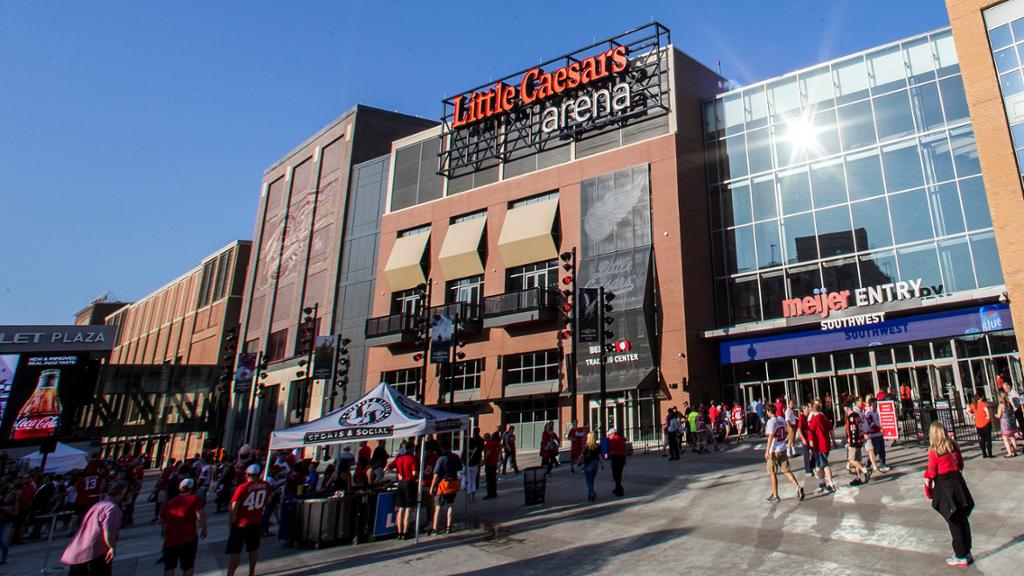San Diego Symphony Announces Official Food and Beverage Program for The Rady Shell at Jacobs Park’s Inaugural Season
By Paul Pettas
The San Diego Symphony officially announced partnerships for The Shell Provisions, its signature culinary program featured at its new permanent waterfront venue, The Rady Shell at Jacobs Park, in downtown San Diego. The program, conceived and created by Frank ODea Hospitality for the San Diego Symphony, curated by Centerplate, offers an impressive range of local specialties in partnership with some of the city’s most popular purveyors including celebrity Chef Richard Blais, URBAN KITCHEN Group, Biga, Lola55, Achilles Coffee Roasters and more.
In addition to top-notch food and beverage selections, The Shell Provisions at the Prebys Plaza Dining  Pavilion and Market boasts new state-of-the-art kitchens and incredible dining spaces, allowing concertgoers to enjoy some of the best tastes San Diego has to offer, while taking in the beautiful sights and sounds of the city. The Rady Shell’s inaugural season started on Friday, August 6, 2021 with Music Director Rafael Payare conducting the Symphony in the world premiere of Mason Bates’s Soundcheck in C Major.
Pavilion and Market boasts new state-of-the-art kitchens and incredible dining spaces, allowing concertgoers to enjoy some of the best tastes San Diego has to offer, while taking in the beautiful sights and sounds of the city. The Rady Shell’s inaugural season started on Friday, August 6, 2021 with Music Director Rafael Payare conducting the Symphony in the world premiere of Mason Bates’s Soundcheck in C Major.
“Our goal with The Rady Shell at Jacobs Park is to not only give San Diegans and visitors an unforgettable musical experience, but also a well-rounded cultural experience that reflects our city. The Shell Provisions highlights cuisine San Diego is famous for, while supporting local businesses and elevating the concert-going experience,” said San Diego Symphony, CEO Martha Gilmer. “We are thrilled to partner with Centerplate and Chef Richard Blais as well as Chef Tim Kolanka and restaurateur, Tracy Borkum with URBAN KITCHEN Group to give concertgoers an unmatched tableside dining experience. We are equally excited to showcase beloved local purveyors along with our dynamic programming this summer. We are infinitely grateful for every partner, donor and community member who helped make this possible.”
Paul Pettas is PR & Communications Director for Centerplate.
Kentucky Venues Enlists Spectra Partnerships to Secure Naming Rights for Two Major Venues and Sponsorship Opportunities at Six Signature Produced Events
By Ian Cox
Kentucky Venues, which operates the Kentucky Exposition Center and the Kentucky International Convention Center, announced a new partnership with Spectra to expand sponsorship and client-building opportunities across the state and generate new revenue sources.
Spectra Partnerships – a major division of Spectra, an industry leader in live events and entertainment –  will serve as KY Venues’ sales consulting agency. The team will be responsible for identifying and cultivating naming rights and corporate sponsorships for the sixth largest convention center in the U.S. – Kentucky Exposition Center, and one of North America’s newly renovated and LEED Silver – Kentucky International Convention Center to generate new revenue sources.
will serve as KY Venues’ sales consulting agency. The team will be responsible for identifying and cultivating naming rights and corporate sponsorships for the sixth largest convention center in the U.S. – Kentucky Exposition Center, and one of North America’s newly renovated and LEED Silver – Kentucky International Convention Center to generate new revenue sources.
 “Kentucky Venues is in the business of generating economic impact for our city and state. We want to use our resources wisely to attract new clients and build partnerships with sponsors,” David S. Beck, president and CEO of Kentucky Venues, said. “We’re excited to work with the professionals at Spectra, leaning on their expertise and experience to help improve events and generate revenue at both of our facilities.”
“Kentucky Venues is in the business of generating economic impact for our city and state. We want to use our resources wisely to attract new clients and build partnerships with sponsors,” David S. Beck, president and CEO of Kentucky Venues, said. “We’re excited to work with the professionals at Spectra, leaning on their expertise and experience to help improve events and generate revenue at both of our facilities.”
Spectra Partnerships will also focus on six annual, signature events that are owned and produced by Kentucky Venues: the Kentucky State Fair, World’s Championship Horse Show, National Farm Machinery Show, Championship Tractor Pull, North American International Livestock Exposition, and North American Championship Rodeo.
“We are thankful that the State of Kentucky has entrusted Spectra to represent the commonwealth throughout this important campaign, as well as offered the opportunity to work with a visionary leader like David Beck,” Bryan Furey, senior vice president, Spectra Partnerships, said. “With two major venues and six quintessential events, Kentucky Venues engaged Spectra to evaluate the available assets and outline a far-reaching strategy for building meaningful, long-term partnerships. We’re eager to begin identifying potential naming rights partners in Louisville, regionally and across the state who recognize the value of this remarkable compilation of venues and signature events.”
Spectra Partnerships – which has secured more than 40 naming rights partnerships in the last 10 years, more than any other company in the space – is a leader in sales representation and strategic consulting for convention centers, sports facilities, and entertainment properties across North America and globally. Its experienced sales team drives revenue via the marketing and sale of naming rights, corporate partnerships, advertising, premium seating, and hospitality initiatives. Spectra provides a blend of management, hospitality, and partnerships services for top-tier clients like the City of Miami Beach and Hall of Fame Village in Canton, Ohio, as well as more than 150 properties, such as Navy Pier, Duke Energy Convention Center, Owensboro Sportscenter, and the Iowa Events Center complex.
Ian Cox is Executive Director of Communications for Kentucky Venues based in Louisville.
Trudy Bourgeois Announced as ENCORE 2021 Keynote

IAVM is please to announce Trudy Bourgeois, Founder and CEO of the Center for Workforce Excellence, as this year’s ENCORE keynote speaker!
Trudy is one of America’s leading experts on transformational leadership and a highly regarded leader in the field of leadership and diversity and inclusion and will be speaking at ENCORE on understanding and overcoming unconscious bias. An expert at developing managers and leaders on how to unleash the greatest potential of every employee, she and her firm are known for building inclusive leaders that can create inclusive cultures, leading to better business results.
Named “Best and Brightest Women Leaders” by Dollars and Sense Magazine, Trudy has a rare ability to tackle very difficult subjects such as race and bias without triggering negative emotions. Drawing on her own life’s experience of being born into segregation, she operates from a principle that “everyone has something to learn” on the journey to accepting each other across differences and building workplaces that are truly inclusive.
ENCORE, IAVM’s new annual virtual conference and trade show, will be held Oct0ber 5-6, 2021. Registration is now open, so save your spot today!
We Need Your Data!
Recently, a Shuttered Venue Operator Grant (SVOG) survey was sent to members who identified as the primary contact for their venues. We received almost 100 replies. Thank you to the members who responded.
We were asking a few questions for all members who applied for SVOG in order to better help members who were writing appeals or asking for budget reconsiderations. We were looking for similar venues, organizational structure and venue ownership so we could match up venues in need of assistance.
Now, we need this information to help TwinLogic Solutions (TLS) advocate for our members with the SBA and congressional offices on two fronts: 1) those who were declined and 2) advocating for excess SVOG funds to stay with those eligible for this program as the delta variant is becoming an issue with tours being postponed/cancelled either nationally or locally due to the inability to mandate vaccinations or masks. If there are excess funds, we want to keep them in SVOG instead of going to other places.
Data is very important for our advocacy efforts. TLS uses this information (anonymously unless we have your permission) to advocate for our members with congressional offices and federal agencies.
If you did not fill out the survey OR if your status has changed since you filled out the survey the last time, please click this link and complete this quick survey.
Tammy Koolbeck, CVE
Advocacy/Industry Affairs Committee
KultureCity Names Detroit’s Little Caesars Arena 2021 Sensory Inclusive Venue of The Year
By 313 Presents
KultureCity, an organization recognized nationwide for using resources to revolutionize and effect change in the community for those with sensory needs, has named Detroit’s Little Caesars Arena the 2021 Sensory Inclusive Venue of the Year. The award was presented at the KultureBALL in Birmingham, Ala., on Saturday, August 21.
All events hosted at Little Caesars Arena are sensory inclusive, and promote an accommodating and positive  experience for guests and fans with sensory needs. Sensory sensitivities or challenges with sensory regulation are often experienced by individuals with autism, dementia, PTSD and other similar conditions.
experience for guests and fans with sensory needs. Sensory sensitivities or challenges with sensory regulation are often experienced by individuals with autism, dementia, PTSD and other similar conditions.
In addition to Little Caesars Arena, Comerica Park, Fox Theatre, DTE Energy Music Theatre, Meadow Brook Amphitheatre and Michigan Lottery Amphitheatre are all KultureCity certified.
“Providing a comfortable and inclusive experience for fans and guests is a top priority at all of our venues,” said Chris Granger, Group President, Sports & Entertainment, Ilitch Holdings, Inc. “We support KultureCity’s tremendous mission and look forward to partnering with them for years to come.”
Through the certification process, event staff are trained by leading medical professionals to recognize guests and fans with sensory needs and how best to handle sensory overload situations. Those overwhelmed by the environment may be provided with sensory bags equipped with noise canceling headphones, fidget tools, verbal cue cards and weighted lap pads. Access to quieter and more secure environments are also available.
“Our communities shape our lives and it’s been so enlightening to see Little Caesars Arena go the extra mile to ensure an inclusive and adaptable environment,” said Uma Srivastava, Executive Director of KultureCity. “We’re honored to partner with Olympia Entertainment, and are excited that Little Caesars Arena is the honoree of the 2021 Sensory Inclusive Venue of the Year.”
Former Sensory Inclusive Venue of the Year award winners include Atlanta’s State Farm Arena in 2019, Orlando’s Camping World Stadium in 2018 and Cleveland’s Quicken Loans Arena in 2017.
Do you want to receive a Front Row News weekly digest?
Categories
- Allied (856)
- Architecture (147)
- Arenas (744)
- Career (890)
- Convention Centers (889)
- Education (608)
- Events (1,528)
- Food & Beverage (193)
- Foundation (113)
- Guest Experience (1,482)
- Industry News (2,253)
- Leadership (1,872)
- Marketing (150)
- Membership (1,985)
- Music (212)
- Performing Arts Centers (453)
- Professional Development (398)
- Research (127)
- Safety & Security (425)
- Sports (763)
- Stadiums (607)
- Student (159)
- Technology (515)
- Ticketing (92)
- Touring (82)
- Trends (357)
- Uncategorized (771)
- Universities (216)
- Video (25)
- Young Professional (198)
Twitter Feed
- Twitter feed loading
Recent Posts
- GEODIS Park Selects Allied Universal As Its Preferred Event Services Provider
- Venuworks Appoints Marc Solis as Executive Director of the Fresno Convention and Entertainment Center
- Los Angeles Convention Center Diverts 8,000 Pounds of Wood Waste to Local Foundation Supporting Fire Victims
- Fort Worth Unveils Plans for Phase 2 of Convention Center Transformation
- San Diego Convention Center CEO Announces Retirement After a Decade of Leadership
Categories
- Allied
- Architecture
- Arenas
- Career
- Convention Centers
- Education
- Events
- Food & Beverage
- Foundation
- Guest Experience
- Industry News
- Leadership
- Marketing
- Membership
- Music
- Performing Arts Centers
- Professional Development
- Research
- Safety & Security
- Sports
- Stadiums
- Student
- Technology
- Ticketing
- Touring
- Trends
- Uncategorized
- Universities
- Video
- Young Professional
Archives
- February 2026
- January 2026
- December 2025
- November 2025
- October 2025
- September 2025
- August 2025
- July 2025
- June 2025
- May 2025
- April 2025
- March 2025
- February 2025
- January 2025
- December 2024
- November 2024
- October 2024
- September 2024
- August 2024
- July 2024
- June 2024
- May 2024
- April 2024
- March 2024
- February 2024
- January 2024
- December 2023
- November 2023
- October 2023
- September 2023
- August 2023
- July 2023
- June 2023
- May 2023
- April 2023
- March 2023
- February 2023
- January 2023
- December 2022
- November 2022
- October 2022
- September 2022
- August 2022
- July 2022
- June 2022
- May 2022
- April 2022
- March 2022
- February 2022
- January 2022
- December 2021
- November 2021
- October 2021
- September 2021
- August 2021
- July 2021
- June 2021
- May 2021
- April 2021
- March 2021
- February 2021
- January 2021
- December 2020
- November 2020
- October 2020
- September 2020
- August 2020
- July 2020
- June 2020
- May 2020
- April 2020
- March 2020
- February 2020
- January 2020
- December 2019
- November 2019
- October 2019
- September 2019
- August 2019
- July 2019
- June 2019
- May 2019
- April 2019
- March 2019
- February 2019
- January 2019
- December 2018
- November 2018
- October 2018
- September 2018
- August 2018
- July 2018
- June 2018
- May 2018
- April 2018
- March 2018
- February 2018
- January 2018
- December 2017
- November 2017
- October 2017
- September 2017
- August 2017
- July 2017
- June 2017
- May 2017
- April 2017
- March 2017
- February 2017
- January 2017
- December 2016
- November 2016
- October 2016
- September 2016
- August 2016
- July 2016
- June 2016
- May 2016
- April 2016
- March 2016
- February 2016
- January 2016
- December 2015
- November 2015
- October 2015
- September 2015
- August 2015
- July 2015
- June 2015
- May 2015
- April 2015
- March 2015
- February 2015
- January 2015
- December 2014
- November 2014
- October 2014
- September 2014
- August 2014
- July 2014
- June 2014
- May 2014
- April 2014
- March 2014
- February 2014
- January 2014
- December 2013
- November 2013
- October 2013
- September 2013
- August 2013
- July 2013
- June 2013
- May 2013
- April 2013
- March 2013
- February 2013
- January 2013
- May 2012
- March 2012
- December 2011
- November 2011
- October 2011
Recent Comments
- Frank Bradshaw, Ph.D., CVE on John Meyer, CVE, a Tireless Advocate of Certification for Venue Professionals, Has Died
- Neil Sulkes on Hilary Hartung, Friend to Many in Venue Marketing, Has Left Us
- Jason Parker, CVE on The Devastation of Hurricane Helene and How We Can Support One Another
- Larry Perkins on Touhey Testifies Against Speculative Ticketing Before Congressional Subcommittee
- Peter Secord on Major Players for Planned Elkhart Amphitheater Were in the Mix at VenueConnect
